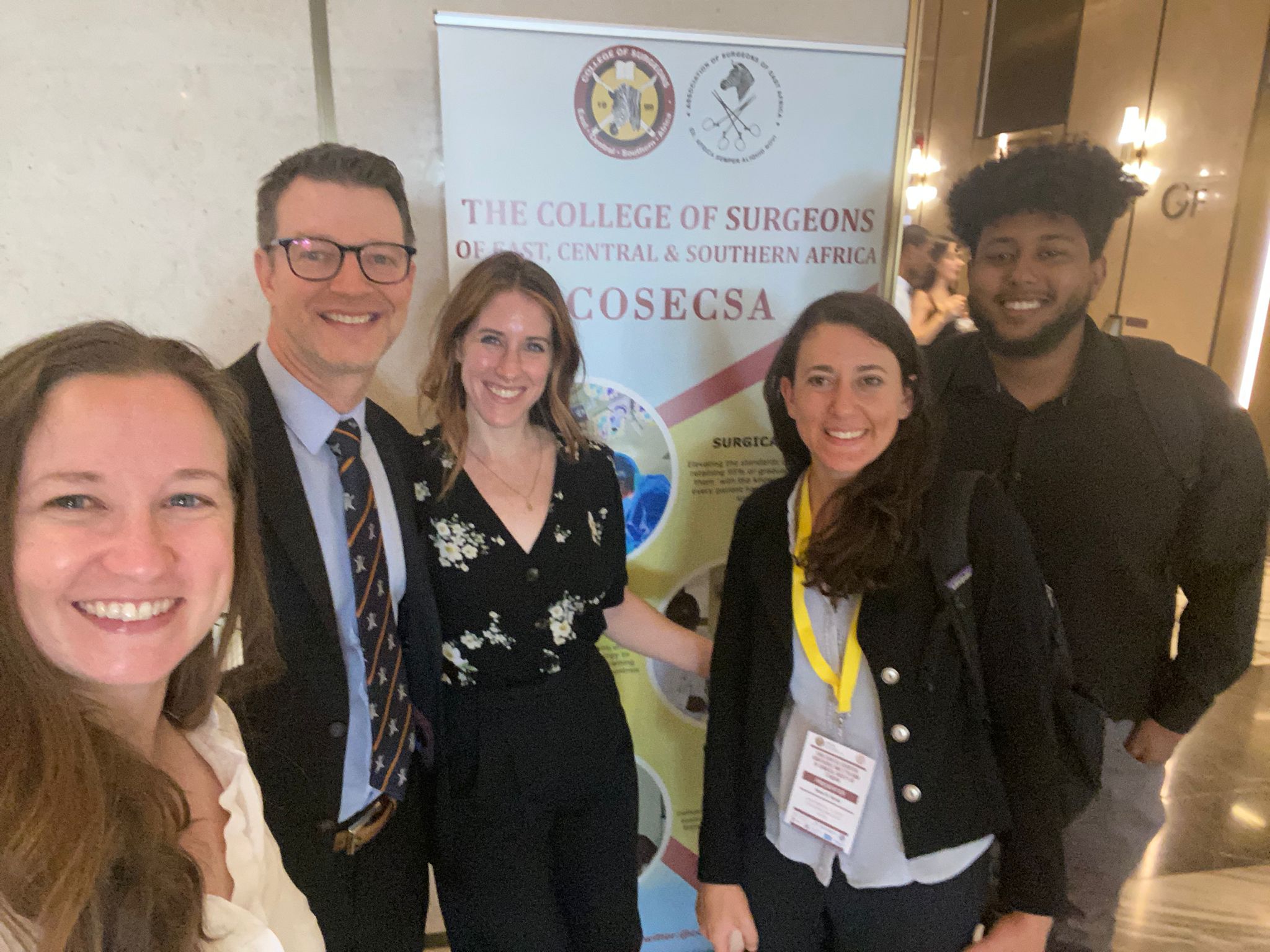
Strengthening Surgical Systems: Reflections from my time in Ethiopia
The path to equitable surgery is long, but through collaboration and sustained commitment, we can ensure that safe surgery is a right, not a privilege.
In 2007, I embarked on a transformative journey as a Peace Corps volunteer in Ethiopia, assigned to monitor and evaluate HIV/AIDS services for a government office. Little did I know that this seemingly random assignment would blossom into a 17-year relationship, turning Ethiopia into a second home. It’s here that my personal and professional passions have intertwined, leading to significant growth as a clinician and an advocate for global surgical equity.
Over the years, I have worked in hospitals across Ethiopia—from Addis Ababa to Dessie, Gondar and Hawassa. In 2018, I returned to Ethiopia as a Lifebox Fellow, supporting hospitals in strengthening surgical and anesthesia care and collaborating with local teams on initiatives like the Clean Cut program, which focuses on infection prevention in the operating room.
I would typically spend my week on-site visits to various hospitals to do process mapping, checking in with hospital teams on their specific quality improvement projects, such as helping reorganize sterile processing facilities, or planning staff trainings. This work brought me face-to-face with a stark reality: the disparity in access to safe, timely surgery between high-income and low-resource settings.
I think about some operations I participated in as a surgical resident in Ethiopia. I particularly recall one memorable case where we planned to operate on a colon cancer patient. However, we found that the cancer had metastasized to other parts of the abdomen, and that rendered the patient incurable. This doesn’t frequently happen in the United States. Early stages of cancer are diagnosed and treated quickly, with the help of advanced imaging, timely surgery, and comprehensive follow-up care. But in Ethiopia, the picture is quite different. A patient might get a CT scan and then have to wait 3 to 6 months for surgery. During this time, the cancer would have spread to other parts of the body, rendering any operation ineffective. Access to chemotherapy or radiation is also not frequently available, especially in hospitals in rural areas.
Cases like these reveal the massive difference that improved resources and infrastructure could make in patients’ lives. Unlike in the United States, the healthcare landscape in Ethiopia requires providers to multitask, which would be surprising to many surgeons and anesthesiologists in the United States. In Ethiopia, clinicians often fill multiple roles: a surgeon might also manage the operating room, oversee quality improvement programs, and liaise with various NGOs to manage projects.
My experiences have taught me that volunteerism in global surgery is impactful but complex. That is why I advise surgical volunteers to go into that work with humility and an open mind. They should spend as much time as they can observing, listening, and understanding the context enough to offer appropriate suggestions and support. The teaching or clinical care provided by visiting volunteers can be helpful, but its utility can be undercut by the attitude that outsiders have all the answers. Asserting there is one correct way of doing something can be hard to do because the context is so different. It takes a lot of thought and sometimes a frameshift to see that there are various ways to care for patients safely in different resource contexts.
The building blocks of safer surgical care begin with the most basic infrastructure: running water, reliable electricity, functional autoclaves, tools like pulse oximeters and capnography, and specialty training. While advanced technologies are welcome and also needed, they cannot replace the need for these essential, basic resources.
Creating lasting change is a collective effort that requires the collaboration of the entire global community. Policymakers, philanthropists, and medical professionals must work together, prioritizing the needs identified by local teams. We need more programs that offer low-resource country clinicians the opportunity to observe high-income care systems firsthand. Simplifying visa processes and funding local practitioners to attend global conferences would empower them to share their insights and connect with international counterparts on an equal footing.
It is humbling to receive the Pfizer Surgical Volunteerism Award from the American College of Surgeons following my work in Ethiopia. This award is a reminder of the challenging days when we were building the Clean Cut program in Ethiopia, facing countless setbacks and pushing forward with the hope that our work would yield lasting benefits. Today, we see the impact of this program worldwide, and this award is a reminder that all those difficult days were worth it.
The path to global surgical equity is long, and only some interventions can solve the complex issues faced by low-resource countries. But with sustained partnerships and a commitment to strengthening local infrastructure, we can make a meaningful difference as we work together toward a future where access to safer surgery is a right, not a privilege.
About Dr. Nichole Starr
Dr. Nichole (MD, MPH) is a general surgery resident at the University of California, San Francisco. She was instrumental in developing the Clean Cut Program. She previously served as a Lifebox Trauma & Surgical Critical Care Fellow. She was awarded the 2024 Pfizer volunteerism award at the American College of Surgeons for her work in Ethiopia.

